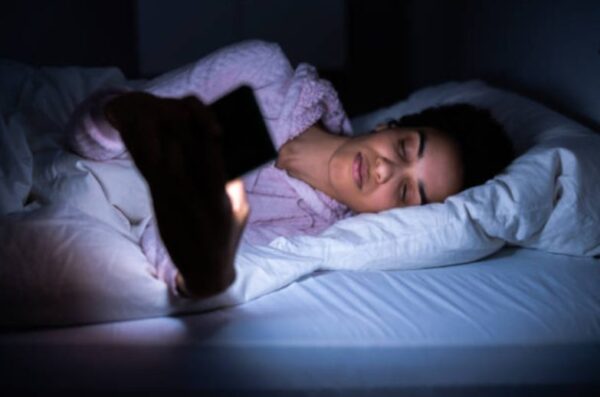You think by having night owl behaviour consistently you are doing good to your health, you are wrong.
A large scale study where over 70,000 people were examined for over 8 long years has revealed something very alarming.
The findings of the study were published in the Psychiatry Research journal.
The study findings recommend sleeping by 1am and those who regularly sleep after that are actually inviting trouble.
“In a survey of nearly 75,000 adults, researchers compared the participants’ preferred sleep timing, known as chronotype, with their actual sleep behavior. They determined that regardless of one’s preferred bedtime, everyone benefits from turning in early. Morning larks and night owls alike tended to have higher rates of mental and behavioral disorders if they stayed up late,” the researchers from Stanford Medicine have said.
Researchers studied chronotype alignment in a large UK population of middle-aged and older adults. Participants reported their sleep preferences and wore accelerometers for a week to track sleep patterns.
Mental health status was assessed using health records, including any mental or behavioral disorders from the International Classification of Diseases.
Among 73,880 participants, 19,065 identified as morning types, 6,844 as evening types, and 47,979 fell in between. The study aimed to explore the relationship between sleep preferences and
mental health outcomes.
The results were clear – both morning types and evening types who went to sleep late had higher rates of
mental health disorders, including depression and anxiety. “The worst-case scenario is definitely the late-night people staying up late,” Jamie Zeitzer, PhD, professor of psychiatry and behavioral sciences and the senior author of the study said.
According to Zeitzer, there may be many explanations for sleep timing’s link to mental well-being, but it likely comes down to the poor decisions that people make in the wee hours of the morning. Many harmful behaviors are more common at night, including suicidal thinking, violent crimes, alcohol and drug use, and overeating.
Morning larks who rose with the sun tended to have the best mental health of all, said the researchers dismissing the wrong notion that sleep duration and consistency of sleep timing helps in good mental health.
How to develop early sleeping habits?
Developing early sleeping habits requires consistency, a structured routine, and a sleep-friendly environment. Start by setting a fixed bedtime and wake-up time, even on weekends, to regulate your internal clock. Gradually adjust your bedtime by 15–30 minutes earlier each night until you reach your desired schedule.
Create a relaxing pre-sleep routine to signal your body that it’s time to wind down. Activities like reading, meditating, or taking a warm bath can help. Limit screen time at least an hour before bed, as blue light from devices disrupts melatonin production.
Optimize your sleep environment by keeping your room cool, dark, and quiet. Invest in a comfortable mattress and pillows. Avoid caffeine, nicotine, and heavy meals close to bedtime, as they interfere with sleep quality.
Stay physically active during the day, but avoid intense workouts right before bed. Sunlight exposure in the morning helps regulate your circadian rhythm, making it easier to fall asleep early.
If you struggle to fall asleep, avoid forcing it—engage in a calm activity instead. Over time, consistency will help your body adjust, making early sleep a natural habit.











